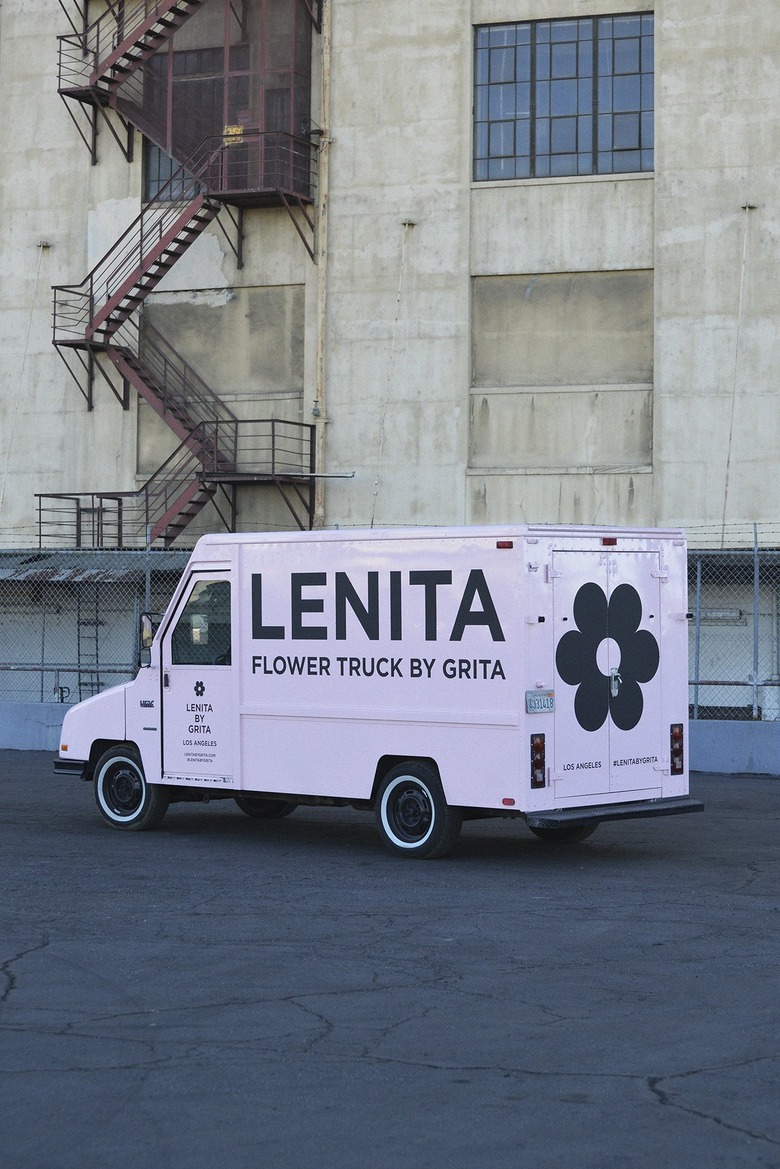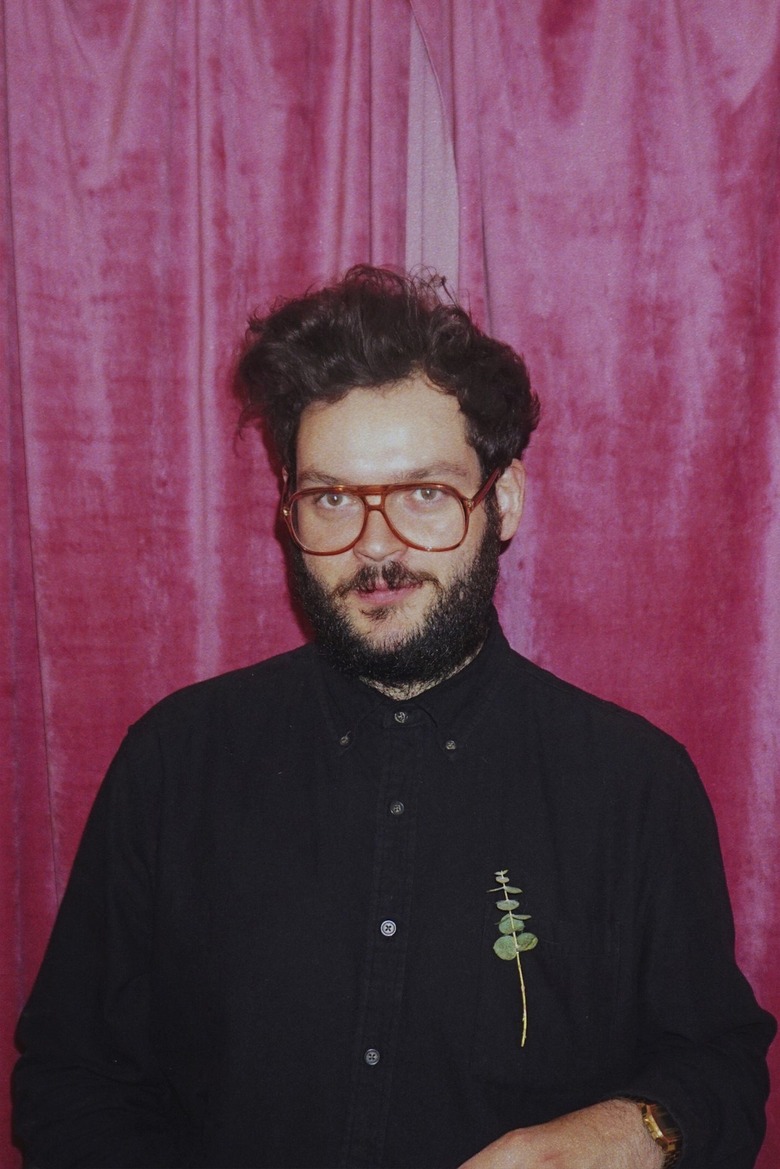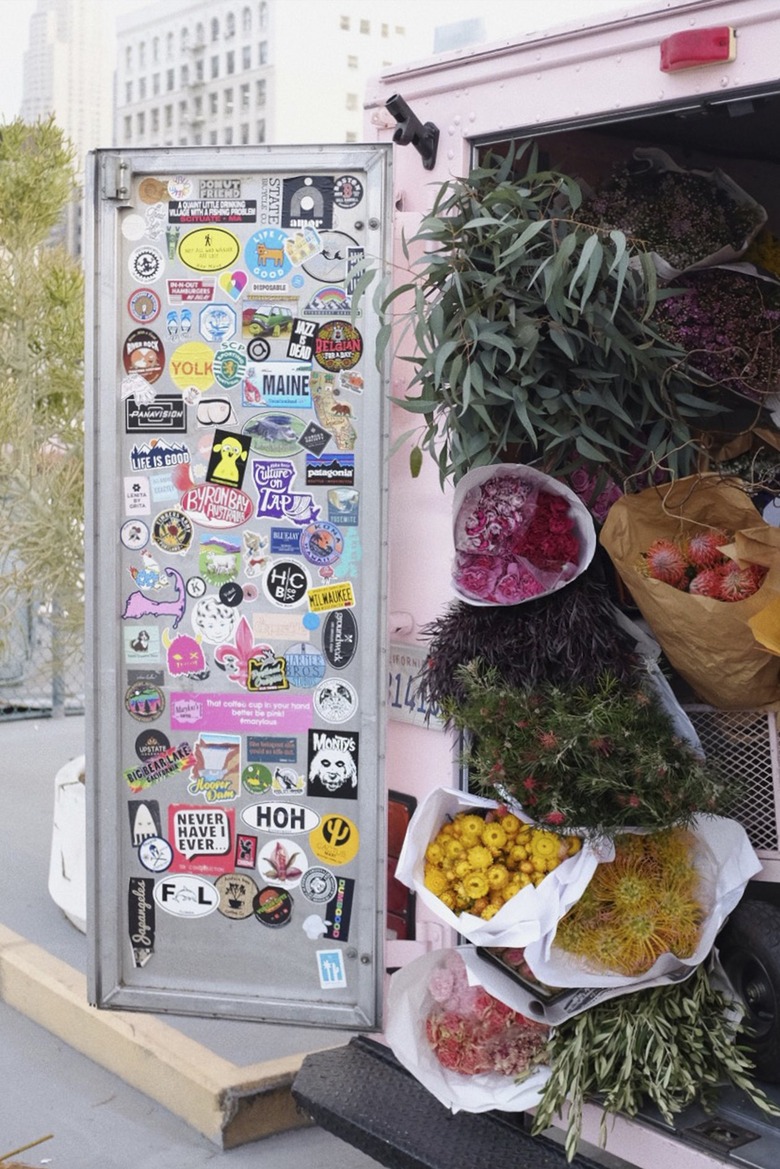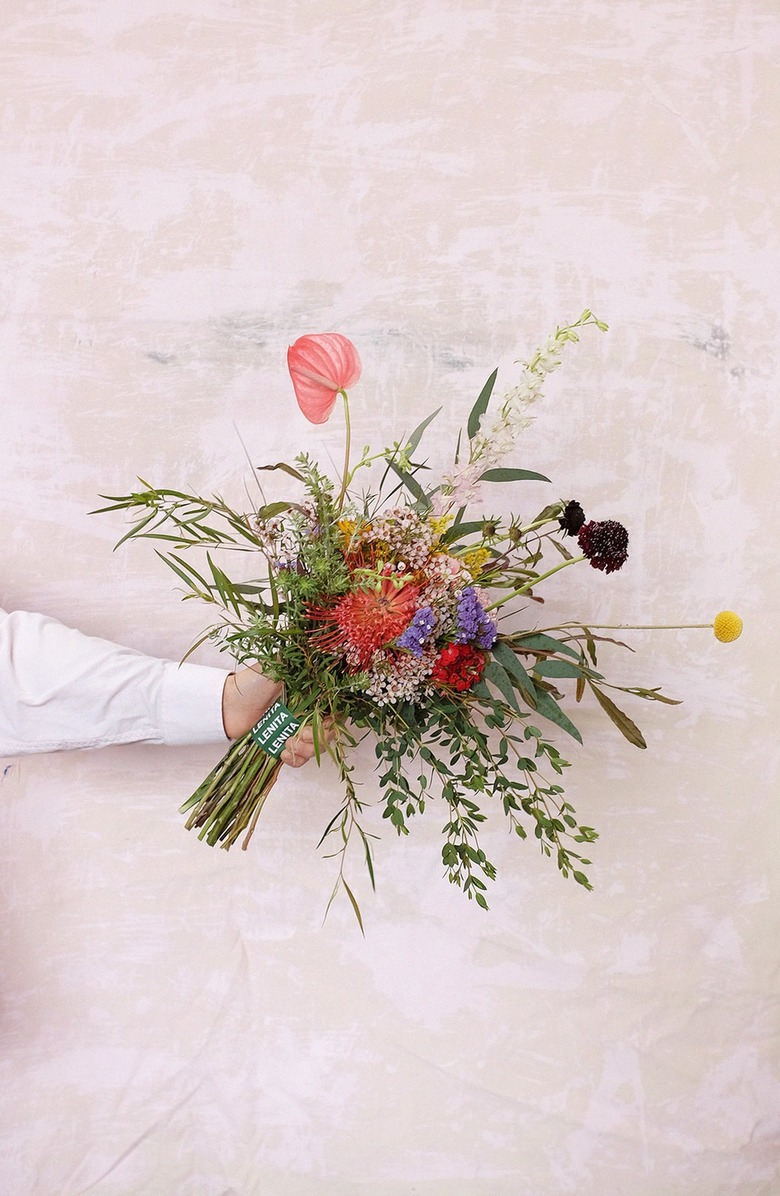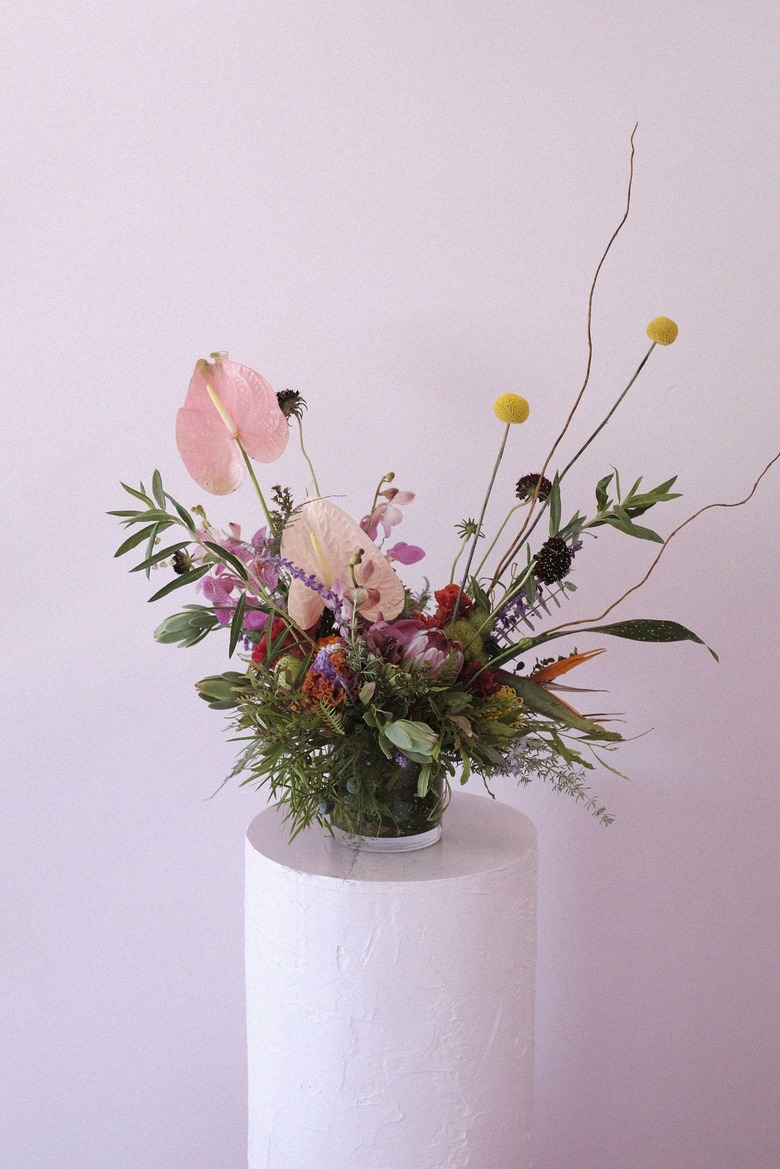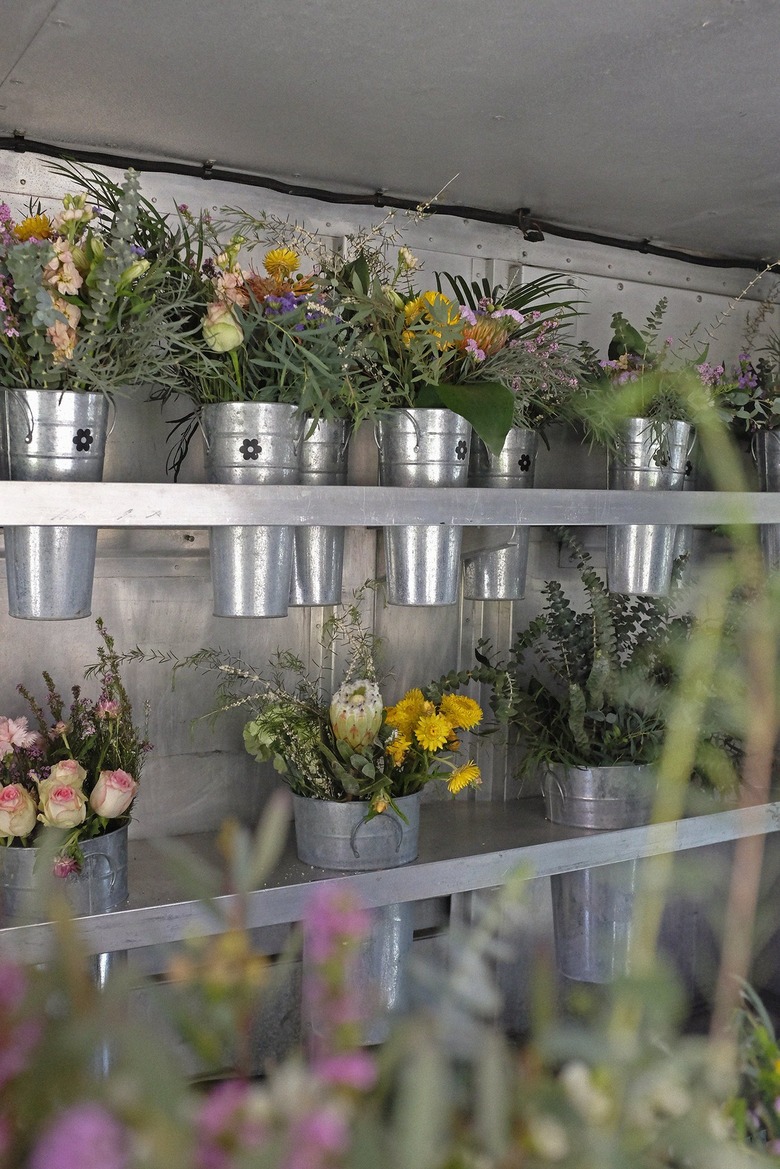How This Flower Truck Brings Bouquets To People Around L.A.
When you see LENITA by GRITA, the pink flower truck popping up across Los Angeles, the intentional design is immediately noticeable. But it's Nemuel DePaula's warmth and charisma that really brings the truck its glow.
Born in the small Brazilian farm town of Alvarenga, the art director and graphic designer grew up with an embodied sense of connection to the land and organic growth. DePaula's creative nature inspired him to pursue design and develop GRITA — his art studio located in the Arts District of Los Angeles.
As a designer, DePaula built a devoted practice around bookmaking and other art forms, but he has always experimented with designing floral arrangements for church, friends' weddings, his mom, or his own home. In a city with abundant neighborhood shops in trucks, DePaula wanted to try something a bit different.
LENITA by GRITA — named after DePaula's mom — amplifies the richness of LA's floral makeup by offering a range of accessible bouquets to each neighborhood he visits. The truck also regularly features work by local artists, particularly women, Latinx (especially fellow Brazilian) creatives, and queer makers who supply ceramics, candles, books, prints, magazines, jewelry, and more.
DePaula told Hunker about his favorite flowers (spoiler: he mostly loves them all), building authentic forms of community, and appreciating the skillful chain of labor that makes the wonder of flowers a daily possibility.
Hunker: What inspired you to create LENITA by GRITA?
Nemuel DePaula: In a way, flowers were my plan B. I do design and art direction and know that one day, I'm going to be not relevant anymore, or just not care about it anymore. I used to tell myself, "I'm gonna get older and move to a small town and open a flower shop." But I realized I loved it too much to wait. The flowers are a bit crazy and wild. They're not really your conventional [arrangements]. This is my way to celebrate design, celebrate flowers, celebrate the city, celebrate people — to bring everything together.
Hunker: What has it been like to build a presence in the community?
ND: I think the word community is sort of misused all the time, especially by big corporations and some already-established brands saying that they're doing something for the community, without knowing what's past the bridge or the folks who are five miles away from here. I feel like it's a conversation that has been happening [more among friends], as people are thinking about their lives and businesses and who they work for. Whenever I do a pop up or go to a coffee shop, store, or restaurant, it's always to bring people together. People who follow the flower truck may have never been to [that location] before, and it's about embracing them, talking and listening, seeing what others are doing.
Hunker: So you've started to see familiar faces?
ND: People make a point to come. That's the community. By now, I know the faces that live in these neighborhoods and what's down the street. I've started linking faces and places together and have made a flower community [through word of mouth] and a network of people who make an effort. I love that, it's amazing. I hear this thing a lot where it's like, "oh my god you're finally near my neighborhood!" Because LA is so spread out, going from one side to another is a commitment. So, I think people look forward to it.
Hunker: What has the COVID shift been like?
ND: Last year, during the one month of COVID that I did go out, a recurrent story I heard was that people were choosing who to support more wisely. When you come to the truck, you're supporting a local farm and a chain of vendors that grocery stores are not. I think people are more aware of how and where to spend their money. Obviously, flowers aren't a cheap product to buy, but I'm always very careful to give everybody an opportunity to participate in the project. If you have $75 for the bouquet, great. If you don't, there's a $5 bouquet. I'll make you something. There's something for everyone.
Hunker: How has your relationship to nature and the chain of production changed since you started the truck?
ND: I didn't realize the amount of labor that goes in. We are very blessed to live in a city where people do make an effort to go out and buy themselves flowers or go out to a farmer's market and support. The awareness [of hard, early-hour labor] became more elevated with COVID. We've sort of lost connection with the soil.
I grew up in a very small town, almost a village. The population was under 5,000 people. We had a couple avocado trees — they grow for a few months out of the year, and then they're gone, because they're seasonal. Here you can go to a grocery store and get an avocado [anytime].
Hunker: How does that remembering and connection with the earth tie into your flower practice?
ND: There are so many trends in flowers. A couple of summers ago, you couldn't buy a flower that wasn't painted or spray-painted. But nature has done the work for us. How do you look at a flower and want to change it? Earth is beautiful, nature is stunning. I see myself as a person who celebrates flowers. I don't make them. I just take what Earth has given us and I put it together, and you can take it home.
Hunker: Do you have favorite flowers?
ND: It changes all the time. But, no I don't. I have flowers that I'm obsessed with for a few weeks. I love coxcomb — it looks like a brain and it's very velvety. I love anything that's from the protea family, and am also obsessed with marigolds. I also look at flowers more like a color combination. I'm not really trying to just pick based on what the flower is. I hear all the time,"your flowers are so unique, where are they from?" We all have access to the same flowers. It's just about how you present them.
